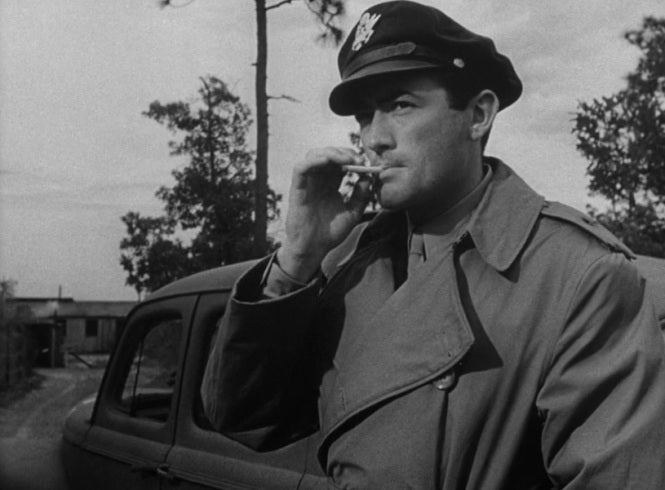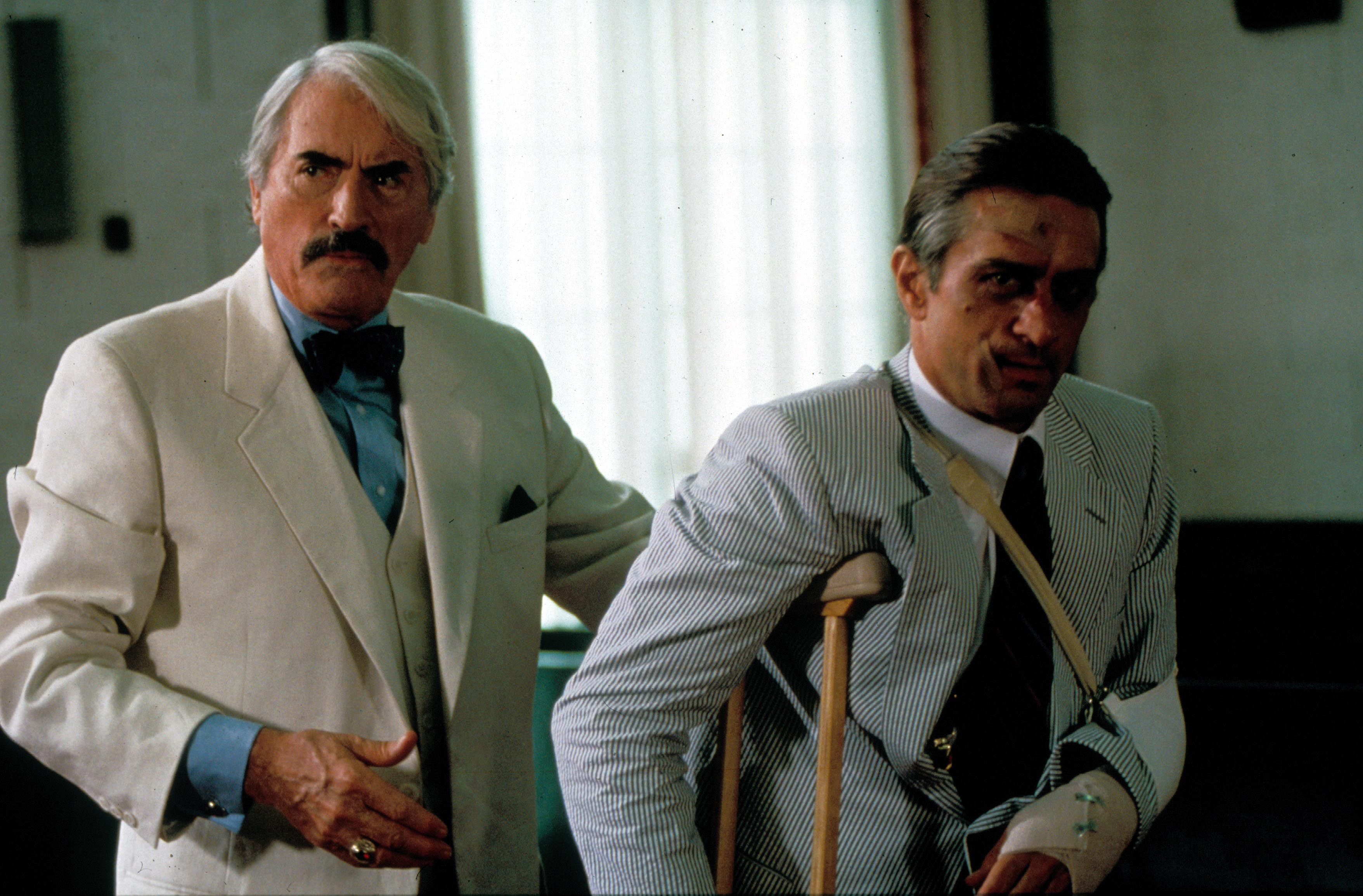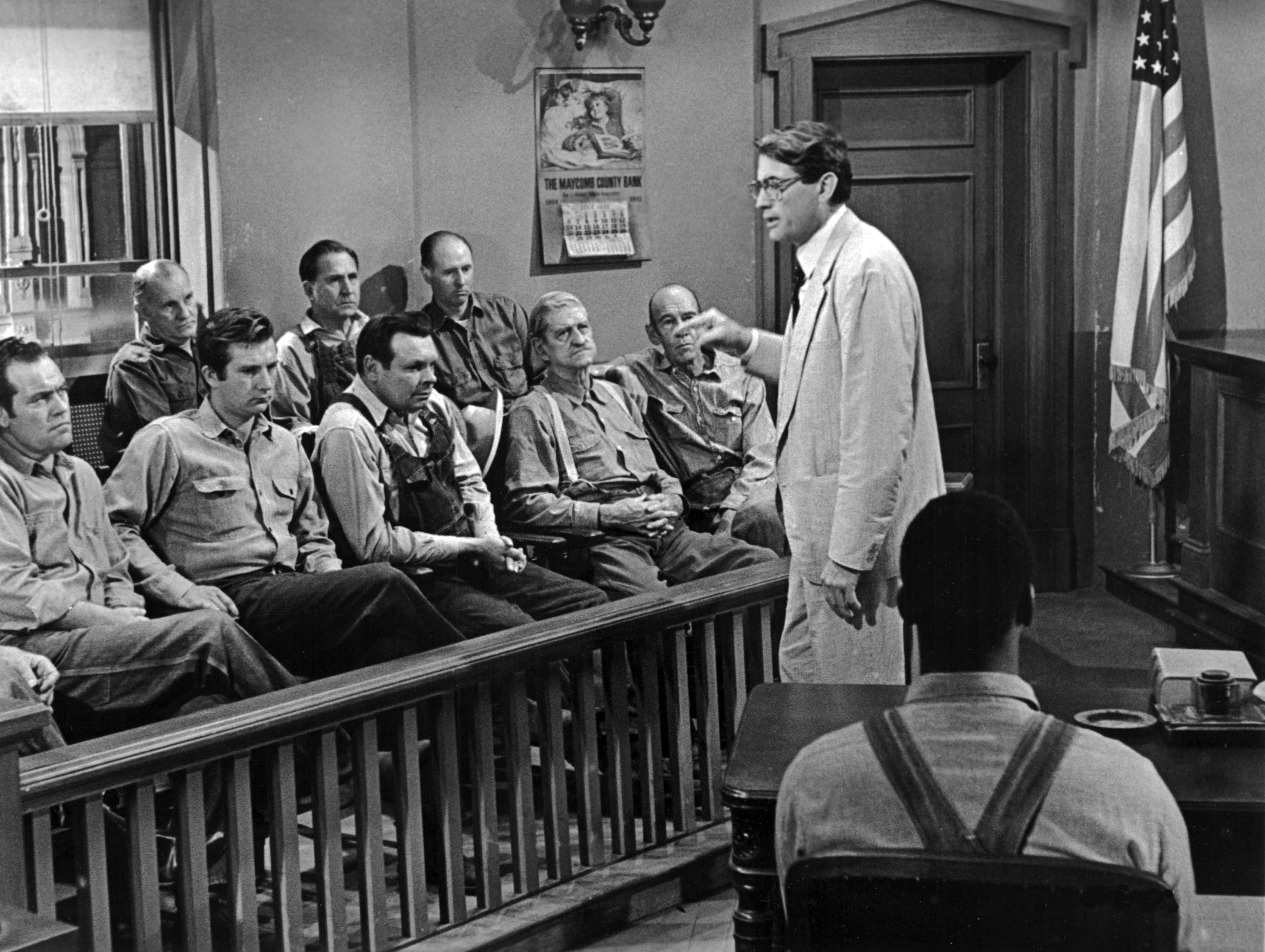From Moby Dick to Cape Fear: Gregory Peck’s 10 greatest films
The adored actor’s career represented decency, integrity, and tolerance – qualities that reflected his own personality. Graeme Ross looks back on his best work

There were some stellar names on the cast list 60 years ago when rollicking World War Two adventure The Guns of Navarone premiered at the Odeon Leicester Square, but the first name above the title was that of Gregory Peck, who, over many years, essayed a screen image that represented decency, integrity, and tolerance – qualities that reflected the actor’s own personality. The Guns of Navarone proved to be one of the most successful films Peck’s career, during which he garnered four best actor Oscar nominations in his first five years as a screen actor before finally winning for his unforgettable performance in To Kill a Mockingbird in 1962. Principled lawyer Atticus Finch, Peck’s protagonist in the latter film, was named the greatest screen hero ever by the American Film Institute in 2003, and such are the parallels between character and actor, it is tempting to suggest that the members were voting for a little bit of Peck when they cast their votes.
To mark The Guns of Navarone’s 60th anniversary and pay tribute to the actor’s many qualities, here is my countdown of the ten best Gregory Peck films.
10. The Big Country (directed by William Wyler, 1958)
This epic widescreen Western has a stirring Jerome Moross soundtrack and monumental vistas that go on forever, much like the movie itself, according to some critics. Peck’s retired eastern sea captain, who is as tough as any westerner but doesn’t feel he has to prove it, finds himself in the middle of a range war when he goes to the west to marry his fiancée. A number of memorable set-pieces justify Wyler’s largesse, notably the marathon early dawn fight between Peck and Charlton Heston filmed largely in long-shot among the vast swathes of prairie.
9. The Omen (Richard Donner, 1976)
Famous for its shock quotient, the biggest surprise of The Omen could be that Peck agreed to appear in it, but he hadn’t had a hit for a number of years and The Omen proved to be box-office gold. And Peck is just right as the uncomprehending diplomat who slowly realises that his adopted son is the Antichrist. It seems like Satan can’t just settle for run-of-the-mill deaths in The Omen, with priests skewered by lightning rods and poor David Warner’s graphic decapitation, but if you suspend your disbelief it’s easy to be swept along by this genuinely frightening film.
8. Spellbound (Alfred Hitchcock, 1945)
In one of cinema’s most romantic pairings, psychoanalyst Dr Constance Petersen (Ingrid Bergman) falls for amnesiac John Ballantyne (Peck), who may also be a murderer, and tries to unravel the mystery of his past. There’s rather too much psychobabble in Spellbound, however the Salvador Dali dream sequence and an evocative Oscar-winning score from Miklós Rózsa combined with twists and turns typical of the master, help create another unique Hitchcock movie.
7. Twelve O’Clock High (Henry King, 1949)

One of the first films to tackle the psychological effects of war on servicemen, Twelve O’Clock High has been used for decades by a host of organisations as a training film on how to recognise the symptoms and effects of the burden of command. Peck was Oscar-nominated as the general who replaces the commanding officer of a US army bomber squadron who has become too emotionally close to his beleaguered men. He ruthlessly and dispassionately sets about restoring morale but eventually falls prey to the same syndrome.
6. Moby Dick (John Huston, 1956)
Huston’s long-cherished filming of the great American novel was an exacting experience for many of the main participants. Screenwriter Ray Bradbury feuded and fought with Huston and Peck almost drowned while strapped to a model of the whale. Various production issues plagued the shoot, which went way over budget, and the result is a flawed but fascinating visual treat, rubber whale or not. The technicolour photography has a grainy authenticity, a dark and melancholic mood permeates the film and Peck is suitably unhinged (but not enough according to Peck himself) as the obsessive Ahab.
5. The Guns of Navarone (J. Lee Thompson, 1961)
In one of the few Alistair MacLean adaptations to transfer well to the screen, Peck heads an all-star cast including David Niven and Anthony Quinn as the leader of a hand-picked allied unit in their quest to access a heavily guarded German fortress in the Aegean Sea and destroy their guns. With Oscar-winning special effects and some breathless action, this splendid boys-own World War Two adventure is a great way to spend three hours, with Peck displaying the required resolve and gravitas to “get the job done”.
4. Cape Fear (J Lee Thompson, 1962)

As he would demonstrate later with The Omen, Peck was quite prepared to risk his wholesome image by participating in more daring material. Cape Fear, which he also co-produced, is a tense and chilling thriller, miles better than Scorsese’s remake, with Robert Mitchum as sadistic sex-offender Max Cady who blames Peck’s lawyer Sam Bowden for putting him behind bars. Mitchum, exuding sexual menace, swaggers through his part as he terrorises Peck and his family. Peck is as solid as you would expect, at first keen to uphold the law, then increasingly desperate to subvert it in order to neutralise the relentless Cady.
3. The Gunfighter(Henry King, 1950)
Often compared to a Greek tragedy, this intelligent Western was one of the first to tackle the enduring cliché of the gunfighter determined to hang up his six guns. Peck is impressively weary and disillusioned as Jimmy Ringo, trying to put his bloody past behind him to settle down with his family, only to find that there’s always one more little squirt kid to outdraw. The Gunfighter, with its portent of doom hanging over Ringo and not totally reliant on action, brought a new realism to the genre and was highly influential.
2. Roman Holiday (William Wyler, 1953)
A sheltered princess longing for a normal life has a romance with Peck’s reporter in Rome and never has dashing around the eternal city on a Vespa seemed so appealing. A delightful romantic comedy, with all eyes concentrating so much on the luminous Audrey Hepburn, that it’s easy to overlook how good Peck’s understated performance is. The gentlemanly Peck, recognising that she was so good, insisted that the actress had equal billing with him above the title, and was proven correct when Hepburn won the Oscar for her first Hollywood film.
1. To Kill a Mockingbird (Robert Mulligan, 1962)

Mulligan’s beloved adaption of Harper Lee’s coming of age novel remains a textbook example of how to film a classic work of literature. Peck himself said the story reflected his own feelings on racial justice, inequality and opportunity and these central themes feel just as relevant today. Peck’s own favourite role of the widowed liberal lawyer, Atticus Finch, raising his children in 1930s Alabama while fighting prejudice and injustice, was based on Lee’s father. The author was so moved by Peck’s personification of him that she presented the actor with her father’s pocket watch.
Join our commenting forum
Join thought-provoking conversations, follow other Independent readers and see their replies
Comments


Bookmark popover
Removed from bookmarks